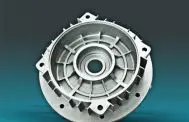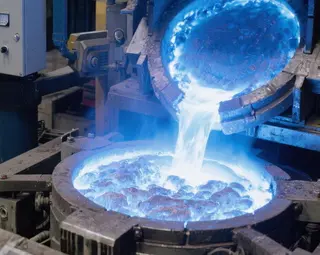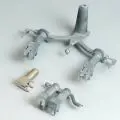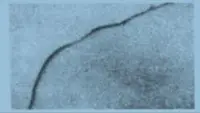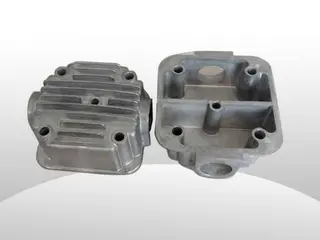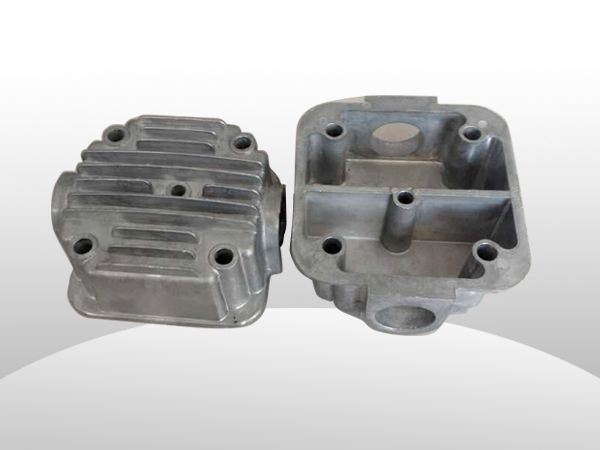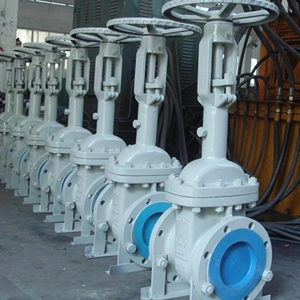Causes of Die Casting Mold Failure
1. The damage and failure of thermal fatigue cracking
The molding surface and the inner part of the mold will deform under the influences of shock cooling and shock thermal in die casting process. Cyclic thermal stress results in secondary damage to the structure and toughness loss of the structure. This will lead to the occurrence of the microcrack, and the microcrack will expand. Once the crack is expanded, the molten metal coupled with repeated mechanical stress will accelerate the expansion process of the crack. Therefore, on the one hand, the mold must be fully preheated before die casting process. On the other hand, the mold must be kept in a certain operating temperature range so as to avoid early cracking failure in the die casting process. At the same time, we need to ensure that on no problem occurs in the molds themselves before they are put into production and manufacturing. Because most of mold failures are thermal fatigue cracking failures in the actual production.
2. Fragmentation failure
There will be cracks in the weakest part of the mold under the role of the injection force, especially in scribe marks on the mold forming surface or electrical processing traces which are not polished. Or microcrack will also firstly occur in the chamfer and the fillet of the mold. When there are brittle phase or big coarse grains in grain boundary, break will easily happen. And when the brittle fracture happens, propagation of crack is very fast, which is a very dangerous factor for the fracture of the mold failure. Therefore, on the one hand, the marks and electrical processing traces on the mold must be polished, even if they are on the gating system parts. On the other hand, the mold materials are required to have high strength, good plasticity, good impact toughness and fracture toughness.
3. Corrosion failure
Zinc alloy, aluminum alloy, magnesium alloy and copper alloy are commonly used die casting alloys, and pure aluminum die casting are also used sometimes. Zn, Al and Mg are active metallic elements and are easy to stick to the molds. When the molds' hardness is high, then the corrosion resistance is better, while the soft points on the molding surfaces are bad for corrosion resistance.
The molding surface and the inner part of the mold will deform under the influences of shock cooling and shock thermal in die casting process. Cyclic thermal stress results in secondary damage to the structure and toughness loss of the structure. This will lead to the occurrence of the microcrack, and the microcrack will expand. Once the crack is expanded, the molten metal coupled with repeated mechanical stress will accelerate the expansion process of the crack. Therefore, on the one hand, the mold must be fully preheated before die casting process. On the other hand, the mold must be kept in a certain operating temperature range so as to avoid early cracking failure in the die casting process. At the same time, we need to ensure that on no problem occurs in the molds themselves before they are put into production and manufacturing. Because most of mold failures are thermal fatigue cracking failures in the actual production.
2. Fragmentation failure
There will be cracks in the weakest part of the mold under the role of the injection force, especially in scribe marks on the mold forming surface or electrical processing traces which are not polished. Or microcrack will also firstly occur in the chamfer and the fillet of the mold. When there are brittle phase or big coarse grains in grain boundary, break will easily happen. And when the brittle fracture happens, propagation of crack is very fast, which is a very dangerous factor for the fracture of the mold failure. Therefore, on the one hand, the marks and electrical processing traces on the mold must be polished, even if they are on the gating system parts. On the other hand, the mold materials are required to have high strength, good plasticity, good impact toughness and fracture toughness.
3. Corrosion failure
Zinc alloy, aluminum alloy, magnesium alloy and copper alloy are commonly used die casting alloys, and pure aluminum die casting are also used sometimes. Zn, Al and Mg are active metallic elements and are easy to stick to the molds. When the molds' hardness is high, then the corrosion resistance is better, while the soft points on the molding surfaces are bad for corrosion resistance.
Send your message to this supplier
Related Articles from the Supplier
Causes of Die Casting Mold Failure
- May 10, 2017
Related Articles from China Manufacturers
Causes and Precautions of Leakage in Die Casts
- Mar 07, 2017
Causes and Precautions of Leakage in Die Casts
- Aug 13, 2019
Related Products Mentioned in the Article
Supplier Website
Source: https://www.china-die-casting.com/causes-of-die-casting-mold-failure.html


